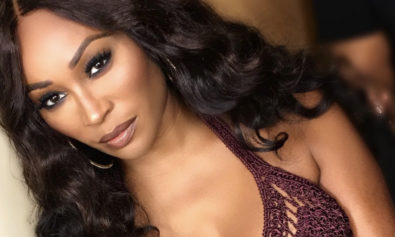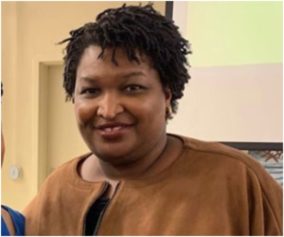For more than half a century, African-American voters have overwhelmingly supported the Democratic Party and its candidates for office, especially in presidential elections. The party’s civil rights platform resonated with the Black community — particularly the Civil Rights Act of 1964 and the Voting Rights Act, which passed in 1965. Despite these accomplishments, all has not been well between Black voters and the Democratic Party.
African-Americans have become weary of the party’s ambivalence on certain issues. They believe Democrats have taken the Black vote for granted and that candidates have a latent concern for the vote they need to win elections.
As the final year of the Obama Administration begins, many African-Americans are indifferent about the two leading Democratic candidates for president. It is not enough for these candidates to show up at Black churches, Black history month events and NAACP dinners, or to embarrass themselves by doing the newest dances in the company of Black children, hoping they will somehow influence their parents’ preference for one candidate or the other. The Black community is asking for more.
The Black Lives Matter movement is a major issue for African-Americans, as is diversity and inclusion on college campuses where Black students have been protesting against racism and unfair treatment. Black voters feel these issues can no longer be ignored. And just because the Republican party has Ben Carson, who is Black yet critical of Black people, one cannot assume the community will endear itself to Democrats.
One of the strengths of the 2007-2008 Obama campaign is that he was a constant presence in the Black community. He set up offices and campaign headquarters that were staffed with the very people who lived in the community. This grassroots work was reminiscent of how SNCC (Student Nonviolent Coordinating Committee), SCLC (Southern Christian Leadership Conference), and CORE (Congress of Racial Equality) operated in the 1960s. This strategy worked. And realizing that October would be too late, Obama began courting the community more than a year prior to the elections and registering more Black voters.
Without an African-American Democrat on the ballot, some wonder if the Black community will show up to the polls at all or shrink away with apathy. But it doesn’t really matter who is on the ballot. The fact remains that the Black community’s concerns are being ignored with impunity. The issues are not being effectively addressed, as the Democratic candidates have been playing to the middle. They don’t want to isolate independent voters by taking a stance on issues that read “too Black.” This is a fallacy that will have the opposite effect. By not taking a firm stance on those critical issues, they will isolate the Black community — and this is oftentimes a winning vote.
Hillary Clinton, for example, needs the votes of Black women, who constitute the majority of Black voters. A feminist stance is not going to do the trick. While African-American women have some things in common with white feminists, for the most part there are fundamental differences that need to be addressed. Experiencing the intersections of race, gender and class, Black women have acknowledged concerns that white women just don’t have to contend with. It is not enough to just pledge support for Planned Parenthood. Clinton will have to reach these women with a commitment of support for their children’s survival when it comes to police brutality, incarceration and other issues that speak to them.
Bernie Sanders fares no better; he was pressured into embracing the Black Lives Matter movement. Initially, he stressed a platform focused on reducing poverty and eradicating classism. The problem with this approach is that it isn’t just a matter of economics for African-Americans. The tenets of racism were woven into classism a long time ago. It is the equivalent of saying affirmative action was created for Black people when in reality it benefited white women the most. Bringing an African-American woman into his campaign to address these issues will not make any strides when there is no community presence. For an anti-poverty platform to reach African-Americans, it first must unravel the racism it feeds on.
Black voters are frustrated. Democrats need to see this and act accordingly. Waiting a month before the general election will be too late to recoup the vote of a community that may not return once it’s gone. It is not favor that is desired, but a strong agenda that directly impacts the lives of African-Americans and that has effective follow-through afterwards. Black voters are serious this go-round, and that is one issue no candidate can afford to ignore.


